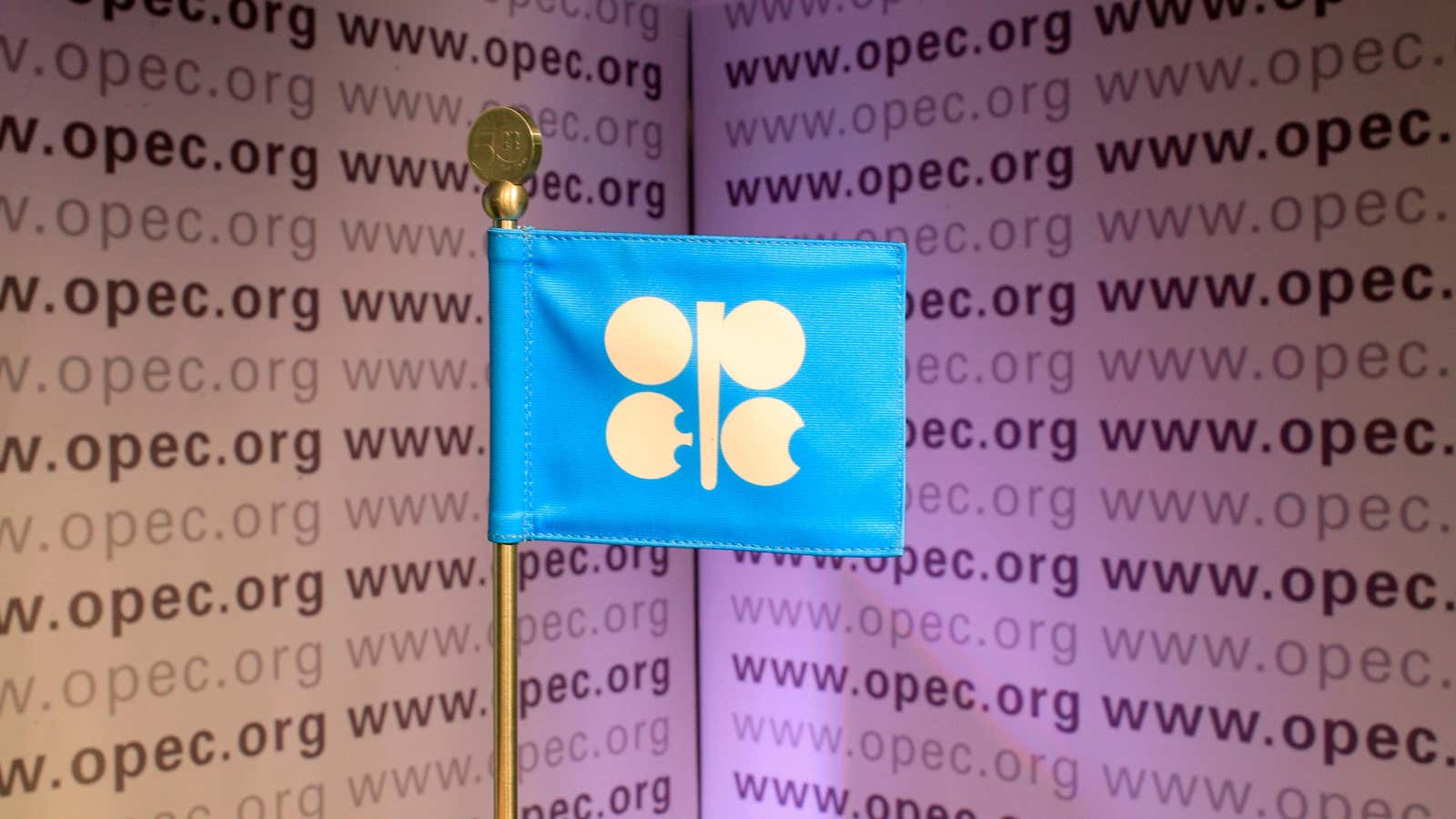OPEC+ announced it’ll slash output by 2 million barrels per day (bpd) on Wednesday (Oct. 5), the biggest cut since the pandemic started in 2020. The White House’s reaction was swift, calling the decision “shortsighted” and accusing the oil cartel of “aligning with Russia.”
Saudi Arabia, which controls about one-third of OPEC’s oil reserves and is seen as a US ally, has not heeded president Joe Biden’s plea against taking such a drastic step. Three months ago, Biden traveled to the Middle Eastern nation to convince the kingdom’s de facto ruler, Crown Prince Mohammed Bin Salman, to pump more barrels.
The production cut is meant to pull the price of oil, which had been falling for the past four months, back up to triple digit dollars. Anticipation of OPEC’s decision this week has already lifted oil prices to more than $90 a barrel.
Saudi Arabia’s decision, which is likely equal parts about politics and oil prices, reminds the West who is boss when it comes to this prized commodity, and has the US reevaluating its foreign policy priorities such as sanctions against Venezuela.
The damage OPEC’s cut will do
The cut in production, in reality, will be lower than 2 million because OPEC and its allies have been underproducing. In August, the coalition missed its targets by 3.58 million barrels per day. In Nigeria, for instance, oil production hit a 32-year-low amid pipeline vandalism and theft.
According to Saudi Energy Minister Abdulaziz bin Salman, the real cuts will be around 1 million bpd, and analysts put that figure even lower, as Reuters reported.
The shortfall in production, exacerbated by Russia’s war in Ukraine, has put upward pressure on energy prices. Earlier, in May, Biden reached into the US’s Strategic Petroleum Reserve to keep oil prices, and therefore petrol prices, in check. After the OPEC+ cuts, he might have to resort to releasing more oil again.
US oil, by the digits
180 million: largest-ever release of oil barrels from the reserve stockpile the Biden administration announced in May; 1 million barrels to be sold daily for 180 days
155 billion: oil barrels sold between May and October
10 million: oil barrels Biden committed to selling in November, extending the 180 day deadline
416 million: barrels of oil left in the reserve; lowest level since July 1984
$3.29: most common gas price per gallon across US pumps. Although, it is north of $5 in some states, and climbing up, already
15-30 cents: the expected increase in US gas prices per gallon on average after OPEC’s decision, according to GasBuddy analyst Patrick De Haan
Biden’s attempts to keep prices down
OPEC+’s decision is especially poorly timed given the US midterm elections are coming up in November. Any further rise in gas prices would reverse all the cheers Biden got for bringing gas prices down in the last few months.
The Biden administration has options on the table, but they come with challenges:
🚫 The Biden Administration is weighing a ban on fuel exports to build domestic inventories and keep consumer prices down, but the largest US oil groups are not on board. They argue a ban would “decrease inventory levels, reduce domestic refining capacity, put upward pressure on consumer fuel prices, and alienate US allies during a time of war.”
🇻🇪The US is looking to ease sanctions on Venezuela to allow Chevron, the last major US oil producer operating in the country, to pump oil there. Millions of barrels of Venezuelan oil could make up for lost Russian supplies. But first Venezuelan president Nicolás Maduro must agree to resume talks with the country’s opposition to work towards a free and fair presidential election in 2024.
Related stories
🛢️Falling oil prices are prompting OPEC to take drastic measures
🤑The White House will lower gas prices today by purchasing oil tomorrow
📉 Lower gas prices are making Americans feel better about everything else
